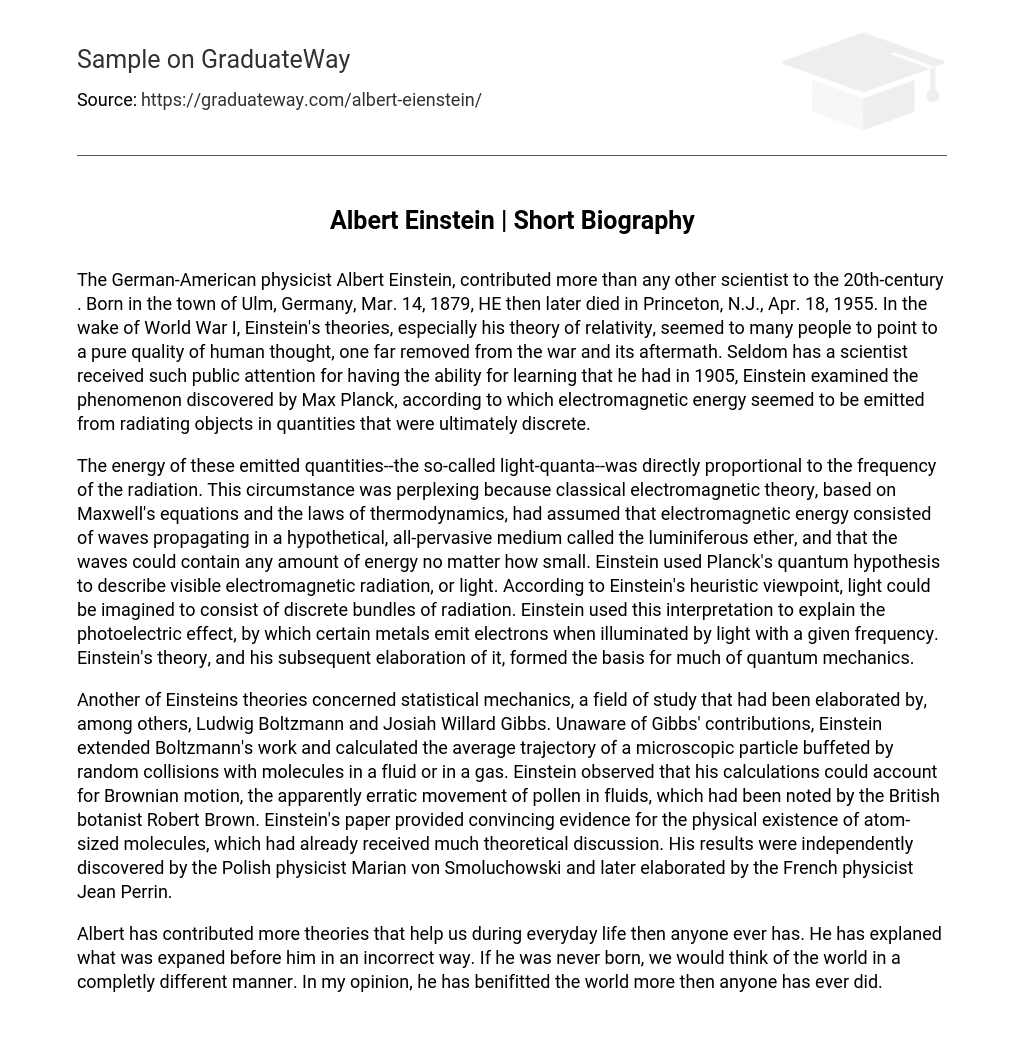Albert Einstein, a physicist of German-American descent, was born on Mar. 14, 1879 in Ulm, Germany and passed away on Apr. 18, 1955 in Princeton, N.J. He made the greatest contributions to science in the 20th century. Following World War I, Einstein’s theories, particularly his theory of relativity, appeared to many as a demonstration of pure human thought that was distinct from the war and its aftermath.
In 1905, Einstein gained significant public attention for his aptitude in comprehending Max Planck’s discovery that radiating objects emitted electromagnetic energy in discrete quantities.
The concept of light-quanta, also known as emitted quantities, was discovered to have a relationship between its energy and the frequency of the radiation. This observation posed a puzzle because classical electromagnetic theory, which relied on Maxwell’s equations and thermodynamic laws, assumed that electromagnetic energy was carried by waves in an imaginary medium called the luminiferous ether. According to this theory, waves could possess any amount of energy, no matter how small. Einstein utilized Planck’s quantum hypothesis to explain visible electromagnetic radiation or light. In Einstein’s viewpoint, light could be envisioned as discrete bundles of radiation. This interpretation allowed Einstein to offer an explanation for the photoelectric effect – a phenomenon where certain metals release electrons upon exposure to light with a specific frequency. Einstein’s theory, along with subsequent developments rooted in it, established much of the foundation for quantum mechanics.
Another of Einstein’s theories focused on statistical mechanics, a field that had been developed by Ludwig Boltzmann and Josiah Willard Gibbs. Unaware of Gibbs’ contributions, Einstein expanded on Boltzmann’s work and calculated the average trajectory of a microscopic particle colliding randomly with molecules in a fluid or gas. Through his calculations, Einstein realized that he could explain Brownian motion, the seemingly random movement of pollen in fluids, which had been previously observed by the British botanist Robert Brown. This paper by Einstein provided compelling evidence for the existence of molecules at the atomic level, an idea that had already been extensively discussed in theory. The same results were independently discovered by the Polish physicist Marian von Smoluchowski and further developed by the French physicist Jean Perrin.
Albert has made more significant contributions to theories that aid us in our daily lives than anyone else ever has. He has presented explanations that differed from those before him, albeit inaccurately. Without his existence, our perception of the world would be entirely different. In my perspective, he has positively impacted the world more than anyone else has ever done.





